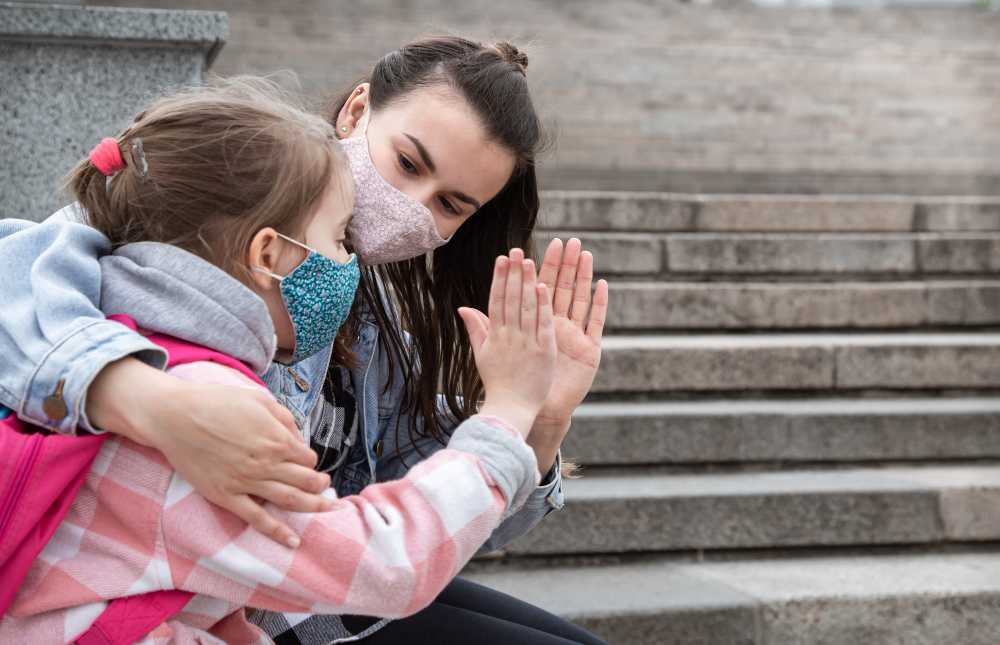According to new research from the University of Central Florida, having a structured environment, whether during school days or when stuck in quarantine as the COVID-19 pandemic continues, could benefit children’s health.
The findings of the study were published in the journal ‘Childhood Obesity.
In a study of more than 50 rural schoolchildren over the course of two weeks, researchers found that behaviors that lead to obesity — like too much sedentary behavior or screen time — dropped on school days compared to non-school days, while amounts of activity increased.
The findings are important because more than 20 percent of US children ages 6 to 11 are obese, which could lead to problems such as type 2 diabetes or other diseases, according to the US Centers for Disease Control and Prevention.
The researchers focused on rural children because they are at increased risk for obesity compared to their urban-dwelling counterparts.
Additionally, rural children’s obesogenic behaviors have not been studied as much, said Keith Brazendale, an assistant professor in UCF’s Department of Health Sciences and the study’s lead author.
These behaviors can include low physical activity, poor diets, irregular sleep, and excess screen and media time.
The researchers used wristband accelerometers to compare the students’ physical activity and sleep on school and non-school days in addition to diaries of daily activities, diet, and screen time that were recorded by the parents.
They found that children accumulated an average of 16 additional minutes of moderate-to-vigorous physical activity per day on school days compared to non-school days.
Furthermore, students reduced their average daily sedentary time by about an hour each day and their screen time by about an hour and a half each day on school days compared to non-school days.
In a separate study of a sub-sample of the rural children, the researchers found that rural children exhibited accelerated weight gain during five months of home quarantine due to the closure of schools and community-operated programs.

“This supports the benefit of attending schools and programs,” Brazendale stated.To combat obesogenic behaviors on non-school days or during quarantine, some sort of structured program or at least a structured schedule for children on those days is recommended, Brazendale said.
“It’s not necessarily the program itself that always provides the direct benefit, but the presence of ‘attending something’ seems to shape behaviors outside of the program’s operating hours and almost sets a default schedule for the day for the child, like when they wake up or go to bed, or when they eat,” Brazendale added.
The researcher specializes in examining elementary school-aged children’s obesogenic behaviors during different times of the year, especially those from low-income and minority populations.
His research and that of others suggest that children’s behaviors are healthier when they have consistent routine and structure in their day-to-day lives, such as on school days compared to other times when a structure is not necessarily as a present, such as in the summer or on weekends.
He said that even on rainy days or when it’s not safe to go outside, organizing a plan of activities — even if they take place in the home — can be a good way to keep children engaged in healthy consistent routines.
“This means may be having a very loose schedule that has time for children’s snack, free play time, maybe some indoor exercises that don’t require a lot of space such as aerobics, dancing to music, or even yoga,” he said.”I also encourage rule-setting around screen and media time, especially in the evening as bedtime approaches, as this can be beneficial for the child,” he added.
The US Department of Health and Human Services recommends that children and adolescents ages 6 through 17 do 60 minutes or more of moderate-to-vigorous physical activity daily. Screen time should be limited to one to two hours a day, according to the CDC.
Study co-authors included UCF health sciences undergraduate students Michael Blankenship ’21 and Serina Rayan ’21, a Burnett Honors Scholar; biomedical sciences majors Daniel Eisenstein and Alejandra Rey ’21. Jeanette Garcia and Cassie L. Odahowski, assistant professors in UCF’s Department of Health Sciences; and Ana Leon, Professor Emerita in UCF’s School of Social Work, were also co-authors on this project.
Brazendale earned his doctorate in exercise science from the University of South Carolina-Columbia. He joined UCF’s Department of Health Sciences, part of the College of Health Professions and Sciences, in 2019.
Reference: (ANI)
![]()











